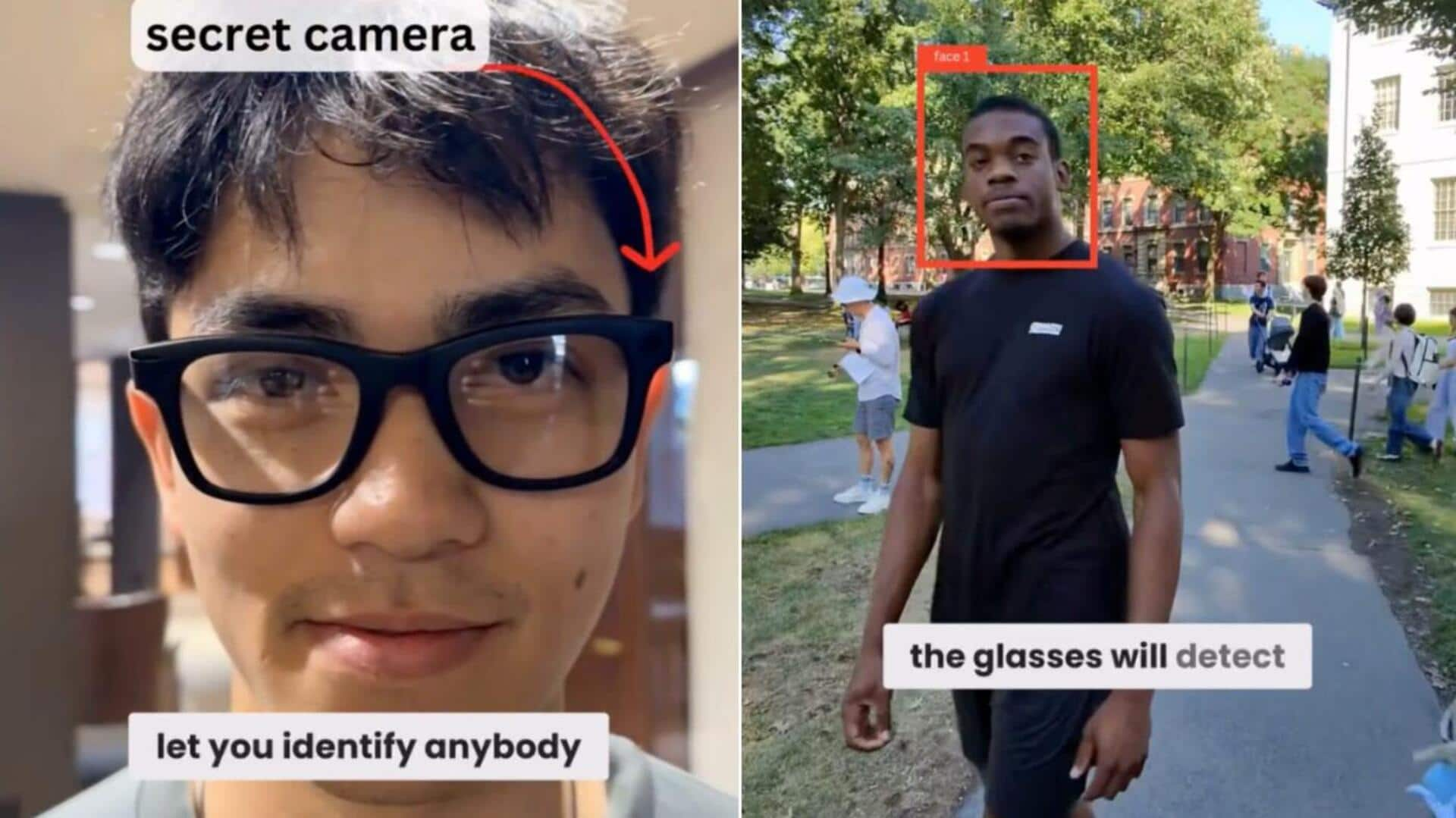
'Scary tech': Students develop smart glasses that automatically identify strangers
What's the story
Harvard students AnhPhu Nguyen and Caine Ardayfio have come up with a tool using Meta's smart glasses that can identify strangers and access their personal data. The tool, called I-XRAY, was shown off in a video on Instagram. Even though this experiment has raised some serious privacy concerns, the creators have promised they won't release the project code to the public.
Tool functionality
I-XRAY: A blend of technology and privacy concerns
The I-XRAY tool captures visual data from Meta's smart glasses and runs it through facial recognition software like Pimeyes. This software can scan the entire internet for matches to a given face. Once it finds a match, an advanced language model figures out probable names and other details about that person. The identified name is then used on various websites to dig up more personal info like home address, phone number, job title or organizational affiliations, and family members.
Extraction process
I-XRAY's data extraction process and user experience
To use I-XRAY, all you have to do is wear the glasses and stroll past people. These glasses are smart enough to know when a face is in their view. They snap a pic, analyze it, and boom—within seconds, all the personal info about that person pops up on your phone. The brains behind I-XRAY are pretty proud of how their gadget can dig up so much info in seconds, thanks to tech that's only recently become super accessible.
Advanced capabilities
I-XRAY's advanced data extraction capabilities
I-XRAY can even dig up partial social security numbers, a trick that's only been possible at the consumer level since 2023, thanks to all those data leaks. The system taps into the capabilities of large language models (LLMs) to understand, process, and gather tons of info from all sorts of sources. This mix of LLMs and reverse face search allows for fully automated and thorough data extraction, something that just couldn't be done with the old-school methods.
Creator perspective
Creators believe I-XRAY's release is beneficial for humanity
Nguyen and Ardayfio are all in on the idea that I-XRAY, which started as a side project, "is a positive for humanity." Because of I-XRAY's demo video, "millions of people have seen the potential of reverse-image search technology and LLMs in a relatively wholesome, harmless way," said Ardayfio. However, netizens had a mixed reaction, with some users saying the tech is too dangerous and should be illegal while others found it cool and wanted to try themselves.